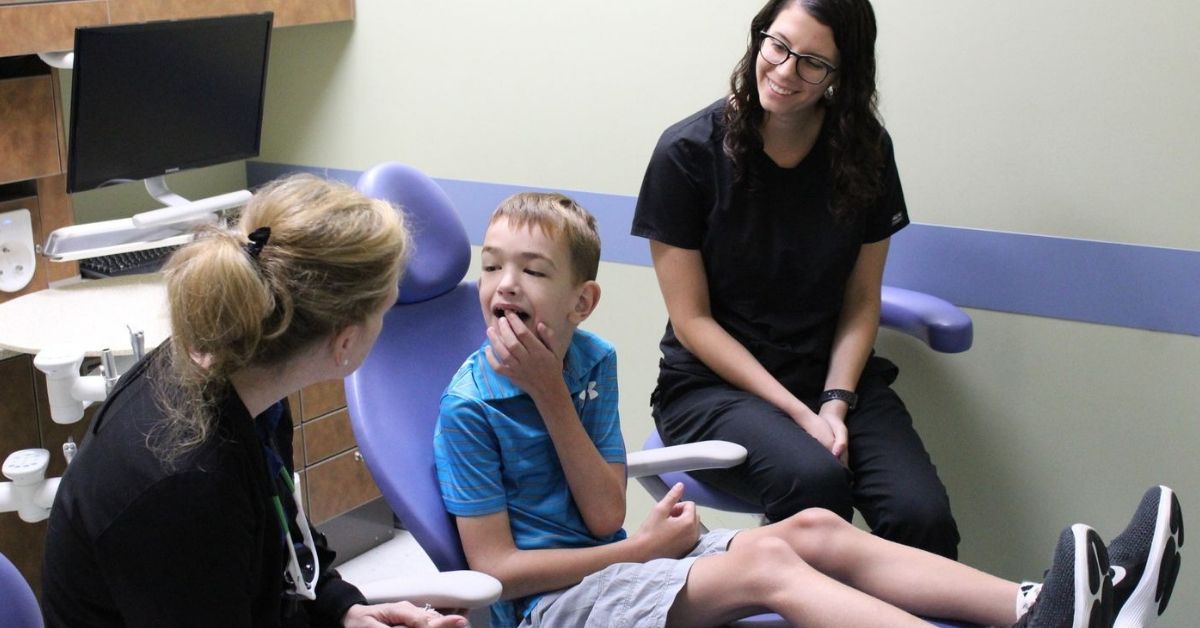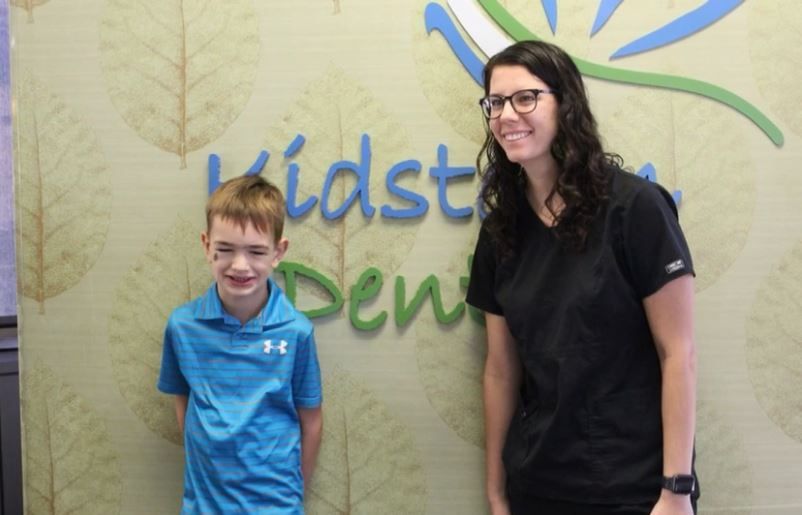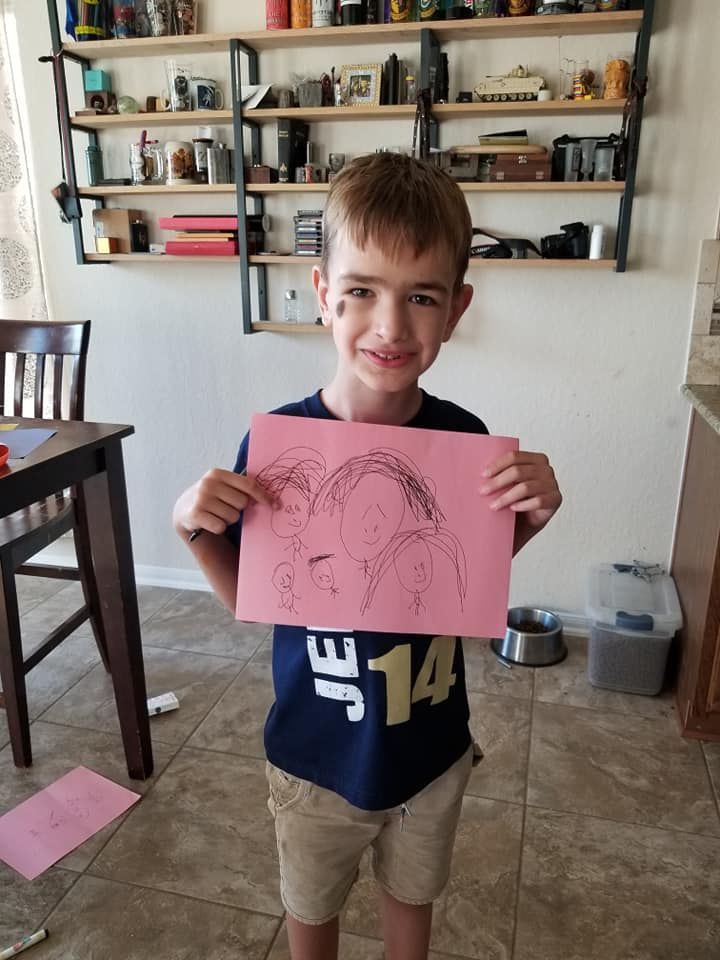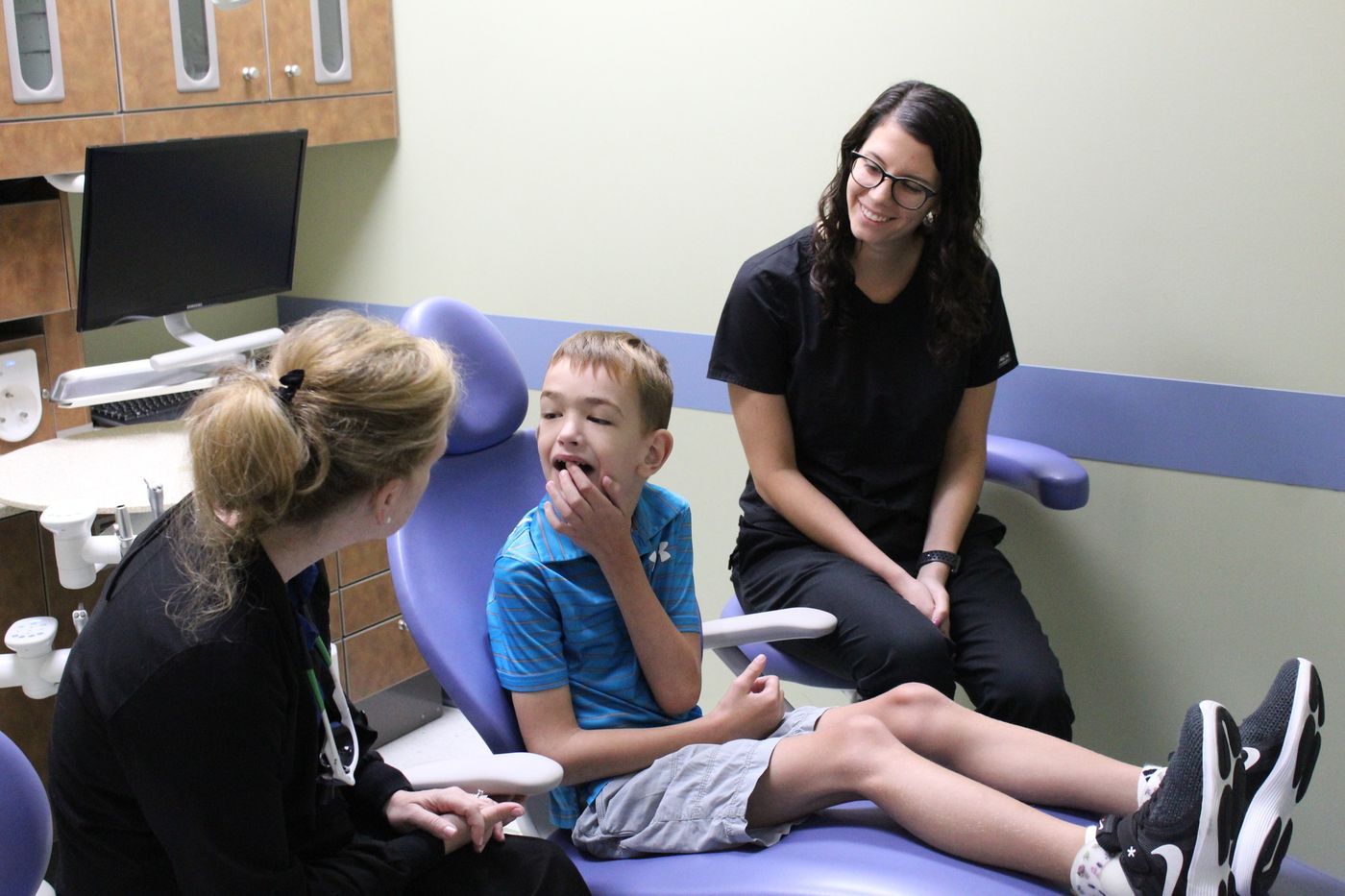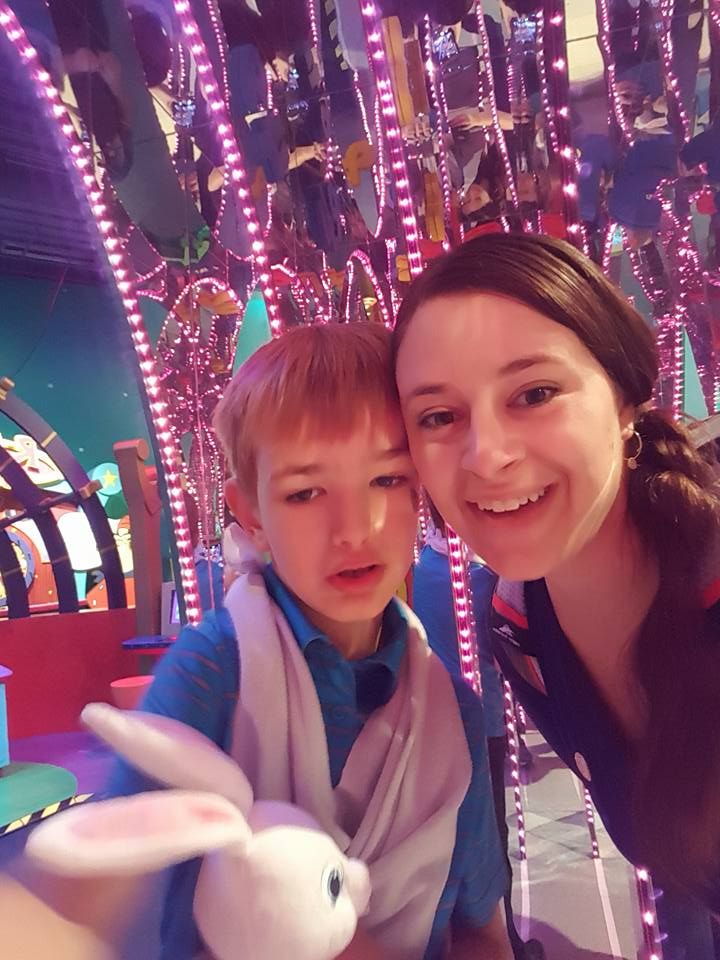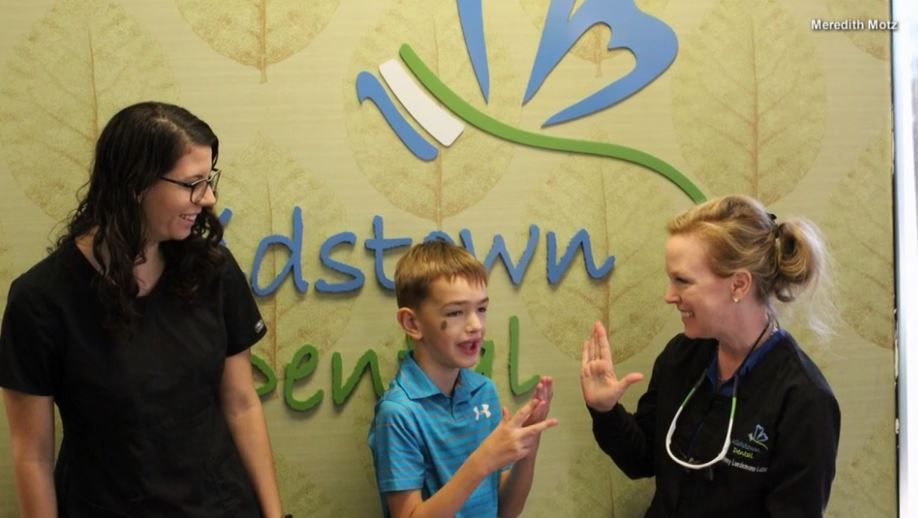Although some people may dread the semi-annual trip to the dentist, it's crucial we grin and bear it for the sake of our oral hygiene.
While we're guaranteed a a good teeth cleaning, our dentists are also able to spot cavities, tooth decay, and gum disease.
However, one dentist from Kidstown Dental in Katy, Texas changed a six-year-old boy's life forever when she discovered he was tongue-tied.
"Sleeping was always stressful. He would stop breathing."
For the first five years of his life, it was exceptionally difficult for Mason Motz to communicate with his family.
While he could make out sounds, it was challenging for him to speak, even with speech therapy sessions.
"He's been in speech therapy since he was a little over one-year-old," his mother Meredith Motz told Inside Edition. "Sleeping was always stressful. He would stop breathing."
"He had trouble eating and swallowing; every single meal we would have to remove something that was choking him. He didn't get the nutrition he needed. His teeth started having problems."
Motz and her husband Dalan were told that Mason's inability to speak was attributed to the fact that he has Sotos syndrome.
The U.S. National Library of Medicine characterizes the disorder by overgrowth in childhood, delayed development of mental and movement abilities, and a distinctive facial appearance (a long, narrow face, high forehead, flushed cheeks, and a small, pointed chin).
"Mason was not nonverbal; he was just unable to speak."
After several frustrating visits to dentist offices who were inexperienced with treating special-needs kids, Motz took her son to Dr. Amy Luedemann-Lazar, who made a startling discovery.
While Mason was sedated, Luedemann-Lazar realized the young boy was tongue-tied.
"We did detect a tongue-tie," she told the news outlet. "Mason was not nonverbal; he was just unable to speak. He had been in speech therapy for years and no one had ever checked under his tongue."
Otherwise known as ankyloglossia, it is a condition where there's an unusually short, thick tissue at the bottom of one's tongue's tip.
It connects the tongue to the floor of the mouth - restricting its ability to move.
"When you're developing (in utero), your tongue is part of the floor of your mouth. "A tongue-tie is an incomplete separation," Luedemann-Lazar explained, adding its effects can be "huge."
The dentist said there are various signs that your child may be tongue tied, including difficulties breastfeeding your toddler, being a picky eater, issues with speech, unexplained cavities, sleeping problems, and their baby teeth close together.
"The procedure took about three minutes."
With just a laser, Luedemann-Lazar was able to loosen the tissue holding Mason's tongue to the floor of his mouth, and within minutes he was able to speak.
"The procedure took about three minutes, not very long ... and the recovery time, which is dependent on the patient, was a seven hour turnaround for Mason," his father shared.
Motz added that the quick procedure cured other health issues and his quality of life has significantly improved.
"It's like night and day. He doesn't have choking episodes anymore; he's eating different types of food," Motz said.
"He's behaving much better at school. His behavior was a problem, because he was getting poor quality of sleep at night, he was constantly tired and was not able to express himself. He doesn't snore anymore. He doesn't have sleep apnea anymore."
"If you think there's something going on, find a doctor that will respect your opinion."
"Mason came in as quiet and apprehensive and nervous," she said. "He had a lot of challenges ... looking at Mason's growth and development, looking at his airwaves, looking at his muscle attachments, identifying the tongue-tie and correcting that for him, and then walking him ... through the process of rehabilitating the tongue function has been amazing. It's like the pot of gold at the end of a rainbow because that's what Mason is."
"He is bright and has so much to say after years of not being able to communicate what was in his heart and in his head. So he's very interactive and funny and sweet."
Motz said that she'll be "eternally grateful" to Luedemann-Lazar, and is now advocating for more awareness surrounding tongue-ties.
"If you think there's something going on, find a doctor that will respect your opinion," the mother-of-two said.
[H/T: Inside Edition]
Have you ever received life-changing news from a medical professional? Let us know in the comments!
